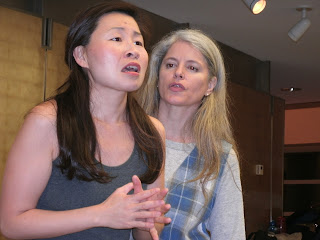Hell Is Other People?
Wednesday, July 18, 2012
Saturday, July 14, 2012
Please Vote for us:
Please comment and Like us on our Fringe Show Page:
Please comment on others' posts about our show:
http://www.washingtonpost.com/gog/performing-arts/no-exit,1232399/reader-reviews.html?subReview=4
http://www.dcmetrotheaterarts.com/2012/07/15/capital-fringe-review-no-exit-by-tzvi-kahn/
http://dctheatrescene.com/2012/07/14/no-exit/
Please comment and Like us on our Fringe Show Page:
Please comment on others' posts about our show:
http://www.washingtonpost.com/gog/performing-arts/no-exit,1232399/reader-reviews.html?subReview=4
http://www.dcmetrotheaterarts.com/2012/07/15/capital-fringe-review-no-exit-by-tzvi-kahn/
http://dctheatrescene.com/2012/07/14/no-exit/
Tuesday, July 10, 2012
Thursday, July 5, 2012
SHOW TIMES & LOCATION
|
No Exit, a brief look back
No Exit is French playwright Jean-Paul Sartre's most well known work, originally titled in French Huis Clos, meaning In Camera, a legal term for a meeting behind closed doors, with a secondary movie industry usage, meaning "closed set." The play has been performed countless times under English translation titles, In Camera, No Way Out, Dead End, among others, but is most commonly known in the United States by the title No Exit. Studied, quoted, and written about more than all of his other works combined, No Exit is indeed Sartre’s legacy. For your reading pleasure, here is another 2 cents worth. You only need to do a web search of the name of the play No Exit to see a vast amount of conflicting and contradictory commentary and analysis written about it. There is as slight bit of irony in there being such a wide range of interpretations of this work: perhaps Sartre himself would have thought of this, wherein lies the reality “hell is other people,” his most famous quote of the play. Some of these disparities are simply misinterpretation stemming for the language barrier, and meaning being lost in translation, but that's a discussion for another post. Still, the interest and wide range of opinions about this play remain largely relevant 68 years after it's premier at the Théâtre du Vieux-Colombier in May of 1944. Why? The answer to this could lie mostly in the fact that No Exit is more than simply a play dealing with the human condition, but a philosophy about the essence of who we are as beings, a philosophy which had much to do with the time period in which it was written. No Exit premiered just before the liberation of Paris in World War II, a time that this generation of theatre audience have studied and are well educated enough to appreciate in history, but will never truly know what is was to live post World War II. The Great War generation lived in a time of less faith, and high uncertainty: Practically the entire world at war, with weapons capable of mass destruction and death on a scale unlike any the world had ever seen. The United States was not long out of the Great Depression, and was only beginning its ascension as a world "Super Power" after the war. That time was also the dawn of the nuclear age, where in the coming years, the end of civilization with the press of a single button was a daily reality. It was a time when mankind worldwide lived with their mortality at the forefront of consciousness. It is in the awareness of the reality of life and death that human beings seek a deeper understanding of the meaning of life and us. Who Am I? It is a timeless question, and by the principles of existentialism, it is a question answered by a lifetime. Whether or not you agree with this belief does not change the question, for any individual. This is why No Exit remains such a popular and relevant play, from May 1944 to July 2012. And if you don't know, no need to "ask somebody," you can see for yourself starting in OUR Theatre's production of No Exit as part of the DC Capital Fringe beginning Friday July, 13 6:15pm at B103 Mount Vernon Square Methodist Church, 900 Massachusetts Ave, NW DC 20001. Let's get on with it….
Subscribe to:
Comments (Atom)




